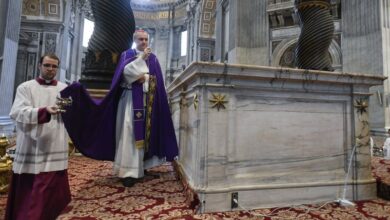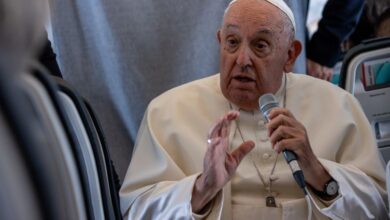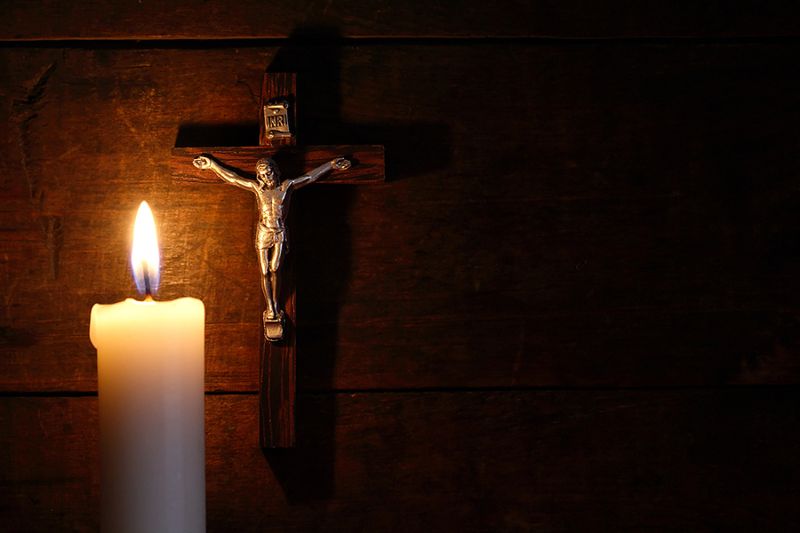5 years after massacre, Nicaragua dictatorship arrests priest, blocks return of another
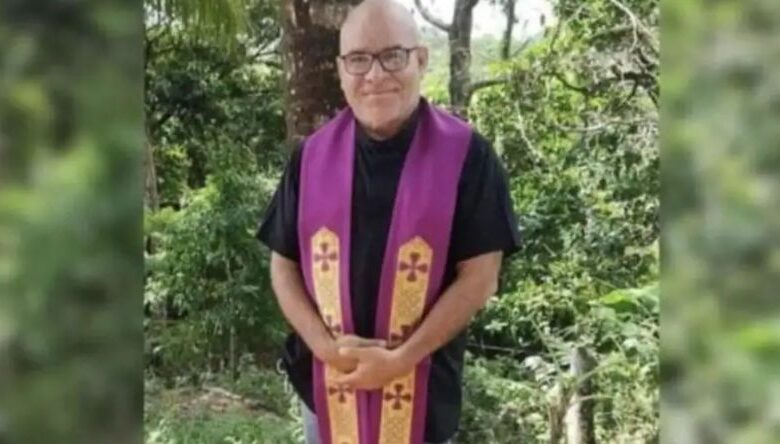
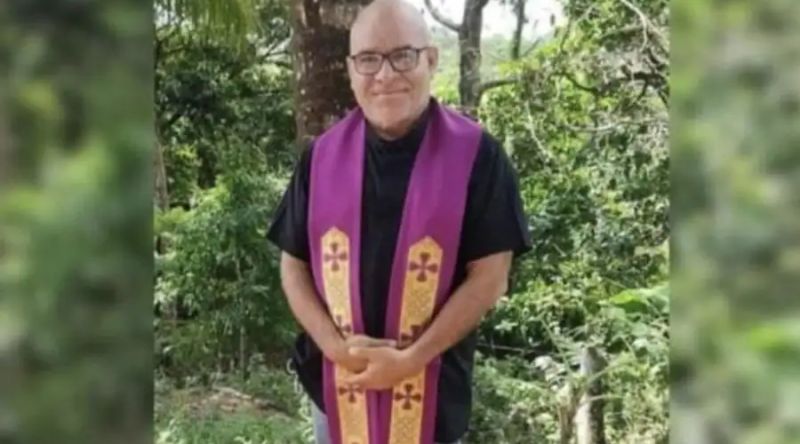 Father Fernando Zamora Silva. / Credit: Photo courtesy of Félix Maradiaga
Father Fernando Zamora Silva. / Credit: Photo courtesy of Félix Maradiaga ACI Prensa Staff, Jul 11, 2023 / 08:00 am (CNA).
Five years after the dictatorship of Daniel Ortega massacred protesters in the Carazo area of Nicaragua in 2018, the regime has arrested a priest as he was leaving Mass and blocked another priest from returning to the country.
Félix Maradiaga, president of the Foundation for the Freedom of Nicaragua and a former presidential candidate, charged that on Sunday, July 9, Father Fernando Zamora Silva, chancellor of the Diocese of Siuna, was “arbitrarily arrested” in the city of Managua where he was visiting.
The arrest occurred near St. Louis Gonzaga Parish as the priest was leaving a Mass in which he had participated as a guest at a religious celebration presided by Cardinal Leopoldo Brenes. “So far, there are no known charges or specific accusations against the priest,” said the former political prisoner in a note sent from the United States, where he is living in exile.
“Unfortunately, this arbitrary arrest is part of the persecution that the Ortega dictatorship is carrying out against the Catholic Church. Four other priests, including Bishop Rolando Álvarez of the Diocese of Matagalpa, are also arbitrarily detained,” Maradiaga said.
In recent days it was learned that Álvarez had been briefly released from “La Modelo” prison, where political prisoners reportedly have been tortured, although he was still in police custody. Unfortunately, the negotiations for him to leave the country failed and he was sent back to prison.
After requesting national and international media to report on Zamora’s arrest, Maradiaga called on “the international community to attend to this serious situation of persecution against the Catholic Church in Nicaragua.”
Dictatorship prevents return of another priest
Martha Patricia Molina, researcher and author of the report “Nicaragua: A Persecuted Church?”, reported that the Ortega dictatorship prevented Father Juan Carlos Sánchez, vicar of St. Francis of Assisi Parish in Managua, from returning to the country.
Molina reported on Twitter July 8 that she had “information that the Sandinista dictatorship has prohibited the entry into the country” of Sánchez, whose parish is located in Bolonia, Managua.
The Directorate of Migration and Foreigners is another means employed by the dictatorship to persecute the Catholic Church by denying members of the clergy from returning to the country or by expelling them from it.
Fifth anniversary of the 2018 Carazo massacre
On July 8, 2018, at about 5 a.m., the forces of the dictatorship and Ortega paramilitaries stormed the Carazo area, attacking the civilian population with high-caliber weapons as part of “Operation Cleanup,” which local inhabitants have called the “caravan of death” due to the number of pickup trucks in which the perpetrators arrived.
By the end of the day, at least 35 people were killed at the barricades the protesters had set up to defend themselves from the advancing paramilitaries.
“We remember with pain and sadness the terrible events that occurred five years ago in Carazo, Nicaragua. It was a dark day in which police forces, paramilitaries, and members of the Army of the dictator Daniel Ortega carried out a brutal attack against the citizenry,” Maradiaga said in a note sent to ACI Prensa.
This attack by the dictatorship killed “a significant number of young people [who were] exercising their legitimate right to oppose a regime that had already been murdering in cold blood, abducting protesters, violating democratic principles, and looting our natural resources,” he continued.
After reiterating his request for justice, Maradiaga lamented: “Nicaragua is today an immense prison because of the policy of state terrorism implemented by the Ortega dictatorship with the active complicity of the army and the police.”
“We maintain that the statute of limitations does not run out on these serious violations of human rights. Crimes against humanity do not admit of amnesties of any kind either,” he stressed.
“We must be clear that for Nicaragua to have a future, there must be justice and [historical] memory. Enough of impunity!” Maradiaga said.
This story was first published by ACI Prensa, CNA’s Spanish-language news partner. It has been translated and adapted by CNA.


